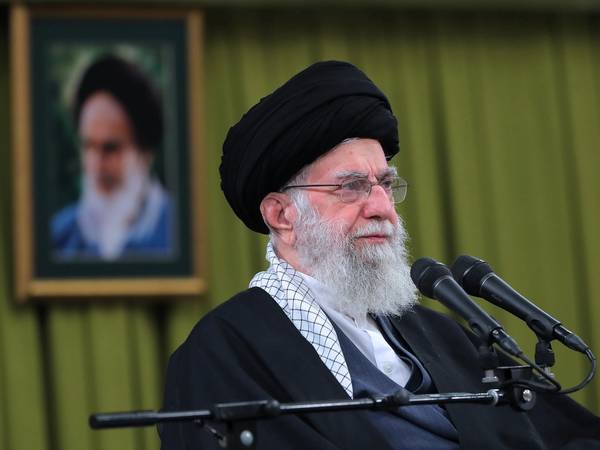The Islamic Republic’s Supreme Leader and other top officials, with the exception of the President, have so far refrained from commenting on the outcome of the US presidential elections and its implications for Iran.
On Thursday, Supreme Leader Ali Khamenei made no mention of the US elections in his first public speech following Donald Trump’s victory.
Instead, speaking to the members of the Experts Assembly, a council responsible for appointing his successor, he warned about the danger of “deviation” in revolutions, the current crisis in the Middle East, and promised Israel’s eventual defeat.
Khamenei repeatedly asserted in the past that the Islamic Republic would not engage in negotiations with the Trump administration. He also declined to respond to a message from Trump, delivered by the late Japanese Prime Minister Shinzo Abe in June 2019.
Some observers suggest in the media that Khamenei may now recognize the need for direct negotiations and, as a result, could adopt a more cautious tone regarding the incoming US President. This shift may stem from Iran’s severe economic challenges, a frustrated population nearing a breaking point, and escalating tensions with Israel.
“[Ruhollah] Khomeini was just as insistent on continuing the war with Iraq, but he eventually had to accept the UN Resolution that ended the war,” Mehdi, an Iranian businessman in Tehran who voted for Pezeshkian in the hope that he may succeed in lifting the Trump-imposed sanctions told Iran International.
"But for now, he will likely maintain that nothing has changed, awaiting further details on Trump’s appointments for national security adviser, secretary of state, and Iran envoy," he added. "Their significant challenge remains the vow to avenge [Qassem] Soleimani’s death."
Khomeini referred to his acceptance of Resolution 598 to end the eight-year Iran-Iraq war in 1988 as drinking a “chalice of poison”. “Khamenei has to drink the poison, too,” Mehdi said.
President Masoud Pezeshkian briefly referred to the US elections in a meeting with his campaign members Thursday. “It will never make any difference to us who wins in the US elections because our country and system rely on our internal power and our proud and great nation.”
Nevertheless, Pezeshkian emphasized that, while his government prioritizes strengthening relations with Islamic and neighboring countries, it does not hold a "closed or limited outlook" on expanding ties with other nations.
Pezeshkian’s Strategic Affairs Deputy and former foreign minister, Mohammad-Javad Zarif, who led the US negotiations resulting in the 2015 nuclear deal, expressed hope in a tweet Thursday evening that the incoming Trump and J.D. Vance administration would “stand against war as pledged” and “heed the clear lesson given by the American electorate to end wars and prevent new ones.”
In his tweet, Zarif addressed Trump and Vance directly by tagging their accounts.
“Iran, having shown its resolve and ability to stand up to any aggression, will not be swayed by threats, but will be cognizant of respect,” he wrote without mentioning Trump’s withdrawal from the nuclear deal in 2018, the draconian sanctions that he consequently imposed on Iran, or prospects for direct talks with the US.
Quoting Khamenei’s statements about Trump, ultra-hardliners have sternly warned Zarif on social media in the past two days that he must get the thought of negotiating with “Soleimani’s murderer” out of his head.
While stressing that the Islamic Republic has had “profoundly bitter experiences” with various US administrations, Foreign Ministry Spokesman Esmail Baghaei said Thursday that the US elections presented an opportunity for “revisiting and revision of misguided previous approaches”.
“What is important to Iran, and an assessment criterion, is the conduct of the US government,” he added.
